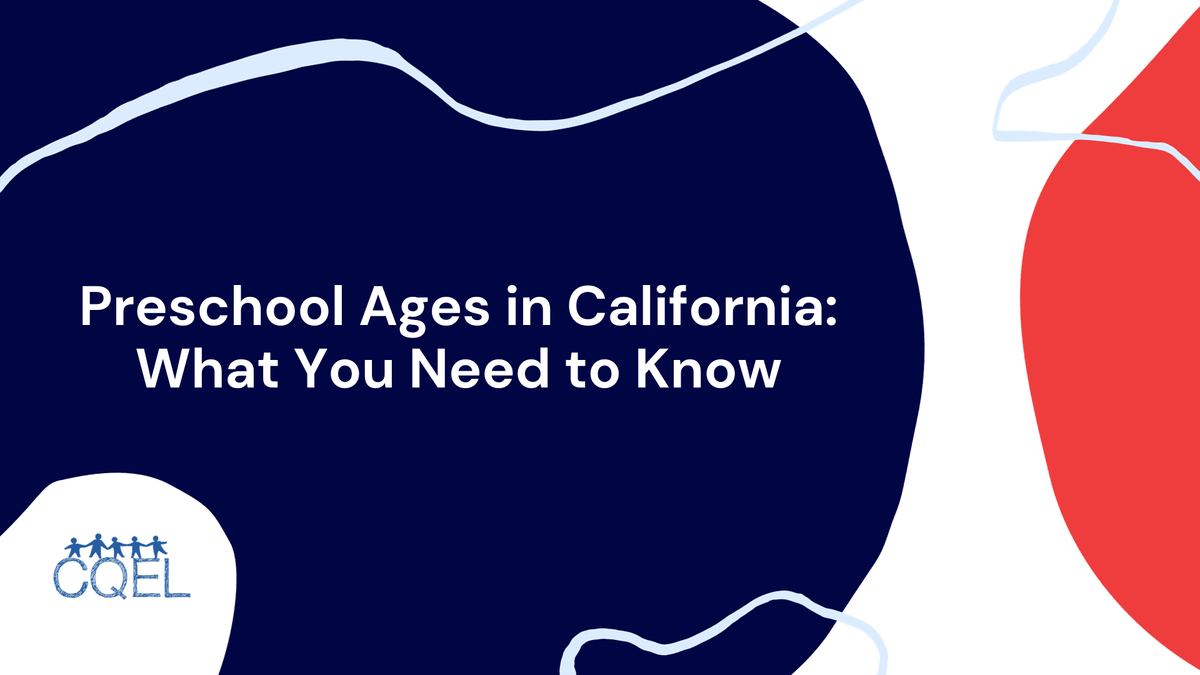Preschool Ages in California: What You Need to Know
In California, preschool is typically for children between the ages of 4 and 5. However, some center programs may accept children as young as 2 years old.

Preschool is a critical time in a child's development. During these years, children learn and grow at an astonishing rate. Preschool programs provide children with the opportunity to learn and develop in a variety of ways, including cognitive, social, emotional, and physical.
In California, preschool is typically for children between the ages of 4 and 5. However, some center programs may accept children as young as 2 years old.
Preschool Ratios
The maximum preschool ratios in California are as follows:
- Infants (6 weeks to 18 months): 1:4
- Toddlers (18 months to 3 years): 1:8
- Preschoolers (3 to 5 years): 1:12
These ratios ensure that children have enough individualized attention from their teachers.
Preschool Development
During the preschool years, children undergo significant development in all areas.
- Cognitive Development: Preschool children learn to think more logically and to solve problems. They also begin to develop early literacy and numeracy skills.
- Social Development: Preschool children learn to interact with others and to form friendships. They also learn to share, cooperate, and take turns.
- Emotional Development: Preschool children learn to manage their emotions and to express themselves in healthy ways.
- Physical Development: Preschool children learn to move their bodies in new and coordinated ways. They also develop fine motor skills, such as hand-eye coordination.
Benefits of Preschool
Preschool offers a number of benefits for children, including:
- Improved academic achievement: Preschool children are more likely to succeed in kindergarten and beyond.
- Enhanced social and emotional development: Preschool helps children to develop social and emotional skills that are essential for success in life.
- Reduced risk of developmental delays: Preschool can help to identify and address developmental delays early on.
- Increased parental involvement: Preschool provides opportunities for parents to get involved in their child's education and to learn more about early childhood development.
Choosing a Preschool in California
When choosing a preschool in California, there are a few things to keep in mind:
- Curriculum: Make sure the preschool's curriculum is aligned with your values and educational goals for your child.
- Teachers: Observe the teachers in the classroom to make sure they are qualified and experienced.
- Environment: Make sure the preschool environment is safe and nurturing.
- Cost: Preschool can be expensive, so be sure to factor in the cost when making your decision.
Additional Tips for Parents
Here are a few additional tips for parents of preschool children:
- Talk to your child's preschool teacher regularly. This will help you to stay informed about your child's progress and address any concerns that you may have.
- Read to your child every day. Reading is one of the best ways to help your child develop early literacy skills.
- Provide your child with plenty of opportunities to play. Play is essential for children's cognitive, social, emotional, and physical development.
- Create a positive and supportive home environment. This will help your child to feel loved and secure.
Preschool is an important time in a child's development. It is a time when children learn and grow at an astonishing rate. Preschool programs provide children with the opportunity to learn and develop in a variety of ways, including cognitive, social, emotional, and physical.
By choosing a quality preschool program, parents can help their children to reach their full potential. When choosing a preschool program, it is important to consider the curriculum, the teachers, the environment, and the cost.
Here are some additional tips for choosing a quality preschool program:
- Look for a program that is accredited by a national or state organization. Accreditation ensures that the program meets certain standards of quality.
- Visit the program in person and observe the teachers interacting with the children. Make sure that the teachers are warm, caring, and qualified.
- Talk to other parents whose children have attended the program. Get their feedback on the program's strengths and weaknesses.
Once you have chosen a preschool program, it is important to stay involved in your child's education. Talk to your child's teacher regularly about their progress and ask how you can support their learning at home.
Preschool is a time for children to learn and grow in a safe and nurturing environment. By choosing a quality preschool program and staying involved in your child's education, you can help them to reach their full potential.
